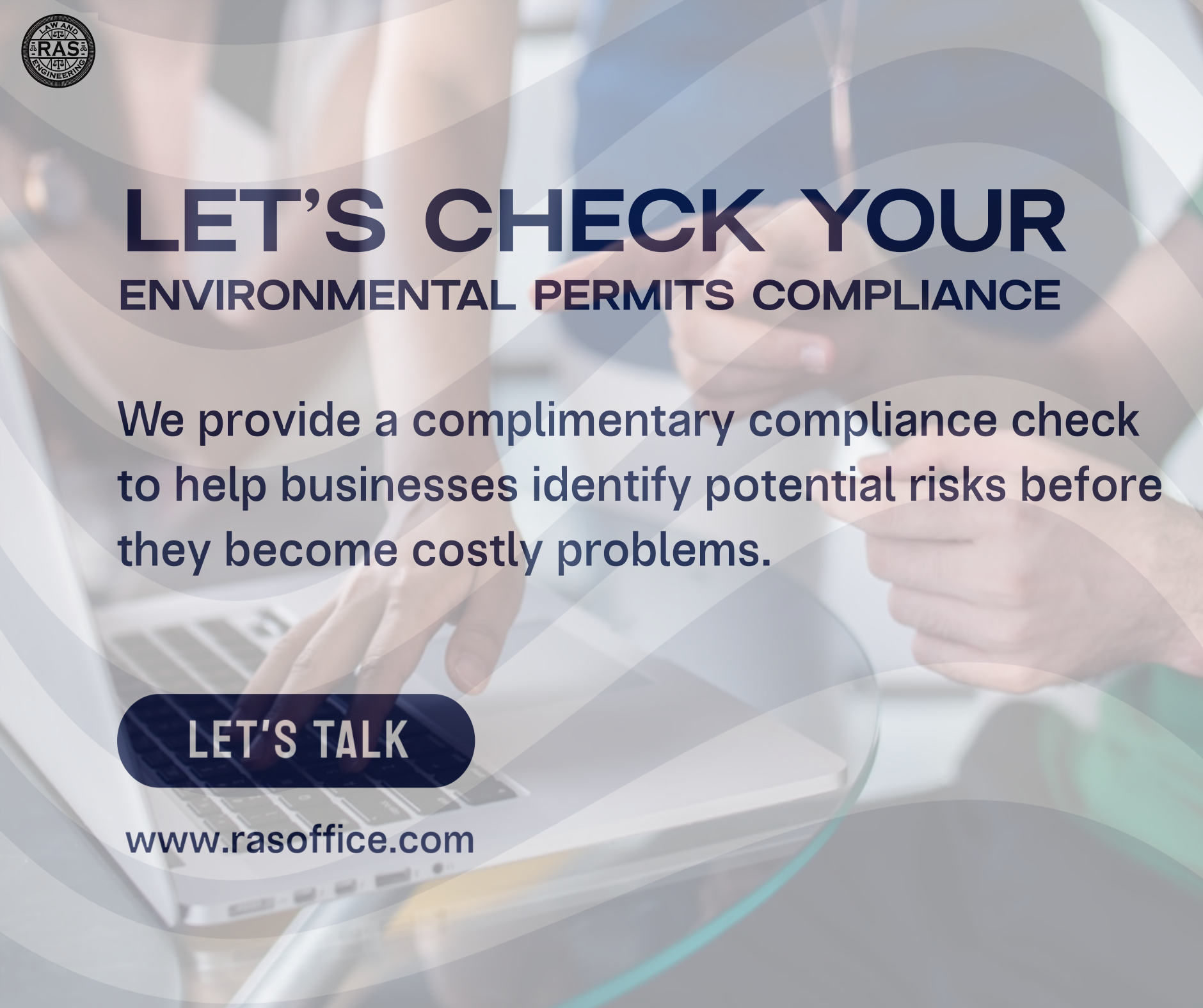
RAS Series: DENR-EMB PERMITS
Overview of DENR-EMB Permits
The Department of Environment and Natural Resources - Environmental Management Bureau (DENR-EMB) issues various clearances and permits to regulate activities that may impact the environment. It includes the Environmental Compliance Certificate (ECC) for projects that pose potential environmental risks, the Permit to Operate (PTO) Air Pollution Source and Control Installation for businesses with emissions, and the Discharge Permit for facilities releasing wastewater into bodies of water or sewer systems.
Other essential permits include the Hazardous Waste Generator Registration for establishments handling hazardous waste and the Transporter and TSD (Treatment, Storage, and Disposal) Facility Permit for companies involved in hazardous waste management. Businesses may also need a Wastewater Discharge Permit, Chemical Control Order (CCO) Registration, or compliance certificates depending on their operations.




